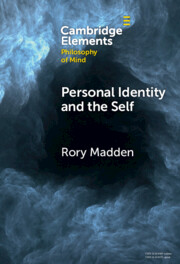184 results
Behavior in second-price auctions by highly experienced eBay buyers and sellers
-
- Journal:
- Experimental Economics / Volume 15 / Issue 1 / March 2012
- Published online by Cambridge University Press:
- 14 March 2025, pp. 44-57
-
- Article
- Export citation
Market composition and experience in common-value auctions
-
- Journal:
- Experimental Economics / Volume 15 / Issue 1 / March 2012
- Published online by Cambridge University Press:
- 14 March 2025, pp. 106-127
-
- Article
- Export citation
The influence of investment experience on market prices: laboratory evidence
-
- Journal:
- Experimental Economics / Volume 19 / Issue 2 / June 2016
- Published online by Cambridge University Press:
- 14 March 2025, pp. 394-411
-
- Article
- Export citation
Suffering and Intellectual (Dis)Ability
-
- Journal:
- Cambridge Quarterly of Healthcare Ethics , First View
- Published online by Cambridge University Press:
- 10 March 2025, pp. 1-8
-
- Article
-
- You have access
- Open access
- HTML
- Export citation
3 - An Empire of Experts
-
- Book:
- Global Servants of the Spanish King
- Published online:
- 20 February 2025
- Print publication:
- 27 February 2025, pp 128-165
-
- Chapter
- Export citation
9 - Moral Categorization and Mind Perception
- from Part II - Thinking and Feeling
-
-
- Book:
- The Cambridge Handbook of Moral Psychology
- Published online:
- 20 February 2025
- Print publication:
- 27 February 2025, pp 198-221
-
- Chapter
- Export citation
Chapter 1 - The Scientific Premises for the Imperial artes
- from Part I
-
- Book:
- The <i>artes</i> and the Emergence of a Scientific Culture in the Early Roman Empire
- Published online:
- 22 March 2025
- Print publication:
- 13 February 2025, pp 15-38
-
- Chapter
- Export citation
Chapter 5 - Making a Roman ars of Medicine
- from Part III
-
- Book:
- The <i>artes</i> and the Emergence of a Scientific Culture in the Early Roman Empire
- Published online:
- 22 March 2025
- Print publication:
- 13 February 2025, pp 203-258
-
- Chapter
- Export citation
How leaders perceive security dangers: The neglected dimension of unfolding experience
-
- Journal:
- European Journal of International Security , First View
- Published online by Cambridge University Press:
- 24 January 2025, pp. 1-25
-
- Article
-
- You have access
- Open access
- HTML
- Export citation
Consumption experience, choice experience and the endowment effect
-
- Journal:
- Journal of the Economic Science Association / Volume 3 / Issue 2 / December 2017
- Published online by Cambridge University Press:
- 17 January 2025, pp. 109-120
-
- Article
-
- You have access
- Open access
- HTML
- Export citation
The healthcare experiences of rural-living Canadians with and without a primary care provider: a qualitative analysis of open-ended cross-sectional survey responses
-
- Journal:
- Primary Health Care Research & Development / Volume 26 / 2025
- Published online by Cambridge University Press:
- 06 January 2025, e1
-
- Article
-
- You have access
- Open access
- HTML
- Export citation
Chapter 14 - Is There a Future for the Philosophy of Nature?
- from Part IV - On Contemporary Challenges for the Philosophy of Nature
-
-
- Book:
- Hegel's <i>Philosophy of Nature</i>
- Published online:
- 19 December 2024
- Print publication:
- 12 December 2024, pp 273-292
-
- Chapter
- Export citation
3.10 - Self-Writing
- from History 3 - Forms
-
-
- Book:
- The New Cambridge History of Russian Literature
- Published online:
- 31 December 2024
- Print publication:
- 12 December 2024, pp 624-642
-
- Chapter
- Export citation

Personal Identity and the Self
-
- Published online:
- 29 November 2024
- Print publication:
- 02 January 2025
-
- Element
-
- You have access
- Open access
- HTML
- Export citation
9 - Time and Again
- from Part III - Epic Time
-
-
- Book:
- The Cambridge Companion to Ancient Greek Epic
- Published online:
- 04 December 2024
- Print publication:
- 28 November 2024, pp 184-203
-
- Chapter
- Export citation
2 - A Theory of People’s Factual Beliefs and Credulity in War
-
- Book:
- Seeing Is Disbelieving
- Published online:
- 31 August 2024
- Print publication:
- 21 November 2024, pp 18-52
-
- Chapter
- Export citation
4 - Proximity to the Fighting and the Puncturing of Factual Bias in Iraq
-
- Book:
- Seeing Is Disbelieving
- Published online:
- 31 August 2024
- Print publication:
- 21 November 2024, pp 84-104
-
- Chapter
- Export citation
Job Talk: Candidate Gender and Presentation of Prior Experience in Television Ads in the US
-
- Journal:
- Politics & Gender / Volume 20 / Issue 4 / December 2024
- Published online by Cambridge University Press:
- 30 September 2024, pp. 814-833
-
- Article
-
- You have access
- Open access
- HTML
- Export citation
13 - The Essay and the Rise of the Novel
- from Part II - The Great Age of the British Essay
-
-
- Book:
- The Cambridge History of the British Essay
- Published online:
- 31 October 2024
- Print publication:
- 04 July 2024, pp 183-198
-
- Chapter
- Export citation
4 - Incoherence Brought to Order: Empiricism and the Essay
- from Part I - Forming the British Essay
-
-
- Book:
- The Cambridge History of the British Essay
- Published online:
- 31 October 2024
- Print publication:
- 04 July 2024, pp 48-62
-
- Chapter
- Export citation


